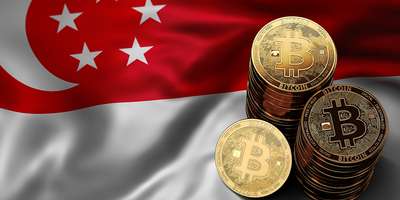ICO Regulation in Singapore
Ressos has deep expertise in Blockchain matters and the structuring, facilitation, implementation and administration of ICO/STO offerings and related investment schemes in Singapore and Hong Kong. We provide a comprehensive "one-stop solution" covering all legal, tax and corporate services aspects of a successful Singapore or Hong Kong ICO/STO. Where required by local regulation or specific client requirements, we cooperate with Singapore local counsel, external tax experts and technical ICO experts.
The following is a summary of the current regulatory position with regards to an initial coin offering (ICO), security token offering (STO) or other token generation event in Singapore. Naturally, legal advice should be sought before acting on any information contained in this article.
March 2014
In March 2014, Singapore's financial regulator, the Monetary Authority of Singapore ("MAS") stated that virtual currencies are not regulated. However, MAS has also clarified that they view a virtual currency (functioning as a medium of exchange, a unit of account or a store of value) as only one particular type of digital token. Where a digital token represents an ownership or security interest over the assets or property of an issuer, such tokens may qualify as an offer of shares or units in a collective investment scheme under the Securities and Futures Act ("SFA"). Where such tokens represent a debt owed by an issuer, they could also be considered a debenture under the SFA. In consequence, the regulatory treatment of any digital token and any ICO offering related thereto would depend on the terms of the token, the ICO offering and the various activities and roles of market players availing themselves of the framework provided by the token issuer.
In a consumer advice issued by MAS, the public was advised to exercise due diligence and to understand the risks associated with ICOs and other investment schemes involving digital tokens and virtual currencies. The consumer advice contained a list of select risks, and recommended to report to the authorities any fraudulent investment schemes linked to digital tokens.
In March 2014, MAS also stated that it intends to issue specific regulations for intermediaries of virtual currencies and other digital tokens in respect of money laundering and terrorist financing risks.
More recently, in 2016, MAS published a statement that it is working on proposed regulations to regulate virtual currency intermediaries (such as token exchanges) operating in Singapore. Separately, MAS issued a policy consultation paper in August 2016 proposing wide-ranging changes to the regulatory regime for electronic payments in Singapore, including the potential introduction of a regulatory framework for activity-based payments.
August 2017
On 1 August 2017, in the context of the strong increase of ICO offerings in Singapore, MAS published a clarification on its regulatory position with respect to digital token offerings as well as a consumer advisory notice in relation to investment schemes involving digital tokens and virtual currencies. The latter was published in conjunction with the Commercial Affairs Department (the body within the Singapore Police Force concerned with financial crime), highlighting the risks perceived by the regulators of digital tokens being abused for criminal activities.
In addition, MAS clarified that it is currently assessing how to address, in terms of regulation, the money laundering and terrorist financing risks associated with digital tokens which do not function solely as cryptocurrencies. In its guide, MAS clarified that the requirements under the Corruption, Drug Trafficking and Other Serious Crimes (Confiscation of Benefits) Act (Cap. 65A), the Terrorism (Suppression of Financing) Act (Cap. 325) and the various regulations giving effect to United Nations Security Council Resolutions, could apply regardless of whether a digital token performs certain functions within MAS's regulatory purview. Where a digital token performs functions that fall within the MAS's scope of financial market regulation, the MAS Notices on Prevention of Money Laundering and Countering the Financing of Terrorism may apply.
14 November 2017
Most recently, on 14 November 2017, MAS published an additional guide on the application of Singapore securities regulation to offers or issues of digital tokens and cryptocurrency in Singapore. In the opinion of MAS, the offer/issue of digital tokens in Singapore may be regulated if the digital tokens fall into one of the categories of capital markets products under the Singapore Securities and Futures Act ("SFA"). Such categories include securities, futures contracts, and contracts or arrangements for the purposes of foreign exchange trading or leveraged foreign exchange trading.
One of the main consequences of falling into one of the above mentioned categories is that intermediaries who facilitate offers or issues of digital tokens or cryptocurrency, such as operators of platforms on which offerors of digital tokens may make primary offers or issues of digital tokens, the operators of token exchanges and similar platforms used to trade digital tokens, and persons who provide financial advice or fund management services in respect of digital tokens or virtual currency, may be required to hold a regulatory license to be able to carry on such activities without breaching the law.
Finally, the new payments framework is expected to include rules intended to effectively address the risks of money laundering and terrorism financing risks in connection with the dealing or exchange of cryptocurrencies for conventional (fiat) or other virtual currencies.
Singapore
Ressos Legal Pte. Ltd.
#23-05A International Plaza
10 Anson Road
Singapore 079903
T: +65 6914 2380
F: +65 6491 6412
E: [email protected]
Key contacts
Dr. Alexander Ressos, TEP
Moreen Tai
Sung Eun Jung
Zandina Glava
